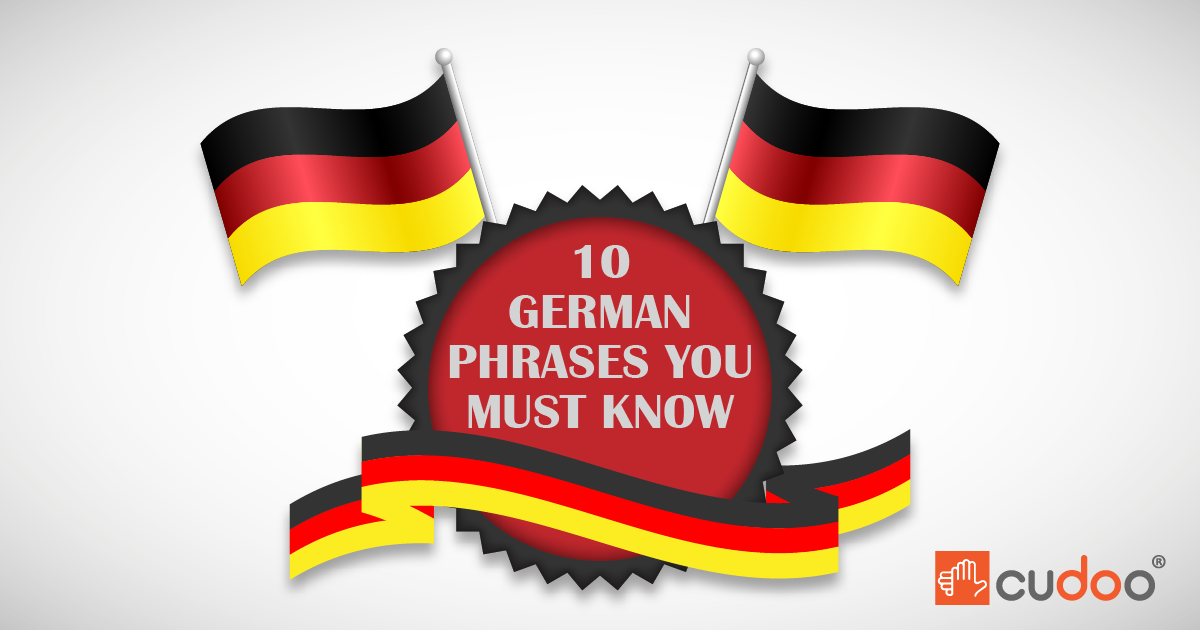When traveling to a new country, we often find ourselves holding a dictionary or a language guide that contains phrases that might not necessarily reflect the local lingo. This gives us away when we try to blend in with the local community and culture as we are regarded as tourists. In order to blend in, picking up a few phrases that are frequently used by the locals can be very handy.
Stand out from the crowd with these ten phrases that will make your German sound more like that of a local than a tourist.
1. Darf ich mal vorbei?
Many beginners of the German language think it’s proper to say ‘‘Entschuldigung’’ (sorry) when pushing through a crowd on the U-bahn or in a train station. However, you should actually say this phrase, which means “may I pass by?” A polite yet firm manner of making your way through the crowd.
2. Einen Augenblick, bitte!
Augen is eyes. Blick is a glimpse or a sight of something. Einen Augenblick is a moment. If you say ‘‘Einen Augenblick, bitte!’’ you’re asking someone to please wait a moment—a useful phrase when boarding a busy train or bus while visiting the country.
3. Kannst du/Können Sie mir helfen?
This phrase is extremely important for tourists in Germany as well as residents. It means “Can you (informal)/Can you (formal) help me?” Essential for asking for directions or any sort of assistance when needed. One of the most important phrases when traveling alone.
4. Schön, Sie kennenzulernen.
“Nice to get to know you,” or “pleased to meet you”—this phrase is essential for meeting and greeting new colleagues or friends. A key phrase that will enable you to strike up, even more, conversations in German and that too with the locals.
5. Alles Gute zum Geburtstag.
This phrase literally translates as “all that’s good to the birthday,” but of course it really means “happy birthday.”
6. Guten Appetit.
Before digging into their delicious varieties of frankfurters or their well-known Spatzel, Germans say Guten Appetit, an amalgamation of German (Guten means “good”) and French (bon appétit). It simply means enjoy your meal.
7. Stimmt so.
It’s a good habit to tip exceptional hosts and hostesses when they cater to you at restaurants or pubs. While it is not mandatory in Germany, tipping will often portray you as a considerate customer. Should your bill read 18 euros—you can hand your server a 20, then say Stimmt so, which means “keep the change.”
8. Der Zug ist schon abgefahren.
This phrase is roughly equivalent to the American expression, “that ship has sailed.” If a situation is irredeemable, or there’s nothing else you can do to change something, you would use this phrase. In German, it translates directly to “the/that train has already left.” Alternatively, it can be used if you actually miss your train from Frankfurt to Cologne.
9. Morgenstund hat Gold im Mund.
This phrase literally means “morning hours have gold in the mouth.” This is basically the German equivalent of “the early bird gets the worm”—a popular saying in English. It means one who wakes up early, gets out of bed and starts working early will be a lot more productive. A very wise advice in any language!
10. Hunde, die bellen, beißen nicht.
This Sprichwort (idiom) has an equivalent in English as well: “his bark is worse than his bite.” This means that people who make a big fuss about things or seem fearsome are often not so scary at all. The phrase in German translates directly to “dogs that bark, don’t bite.”
Govind Nair
Latest posts by Govind Nair (see all)
- A Guide to Islamic and Arabic Education in Dubai - October 20, 2022
- 7 Languages to Win Hearts This Valentine’s Day - February 6, 2021
- Why Language Learning Shouldn’t Be A New Year’s Resolution - December 28, 2020

